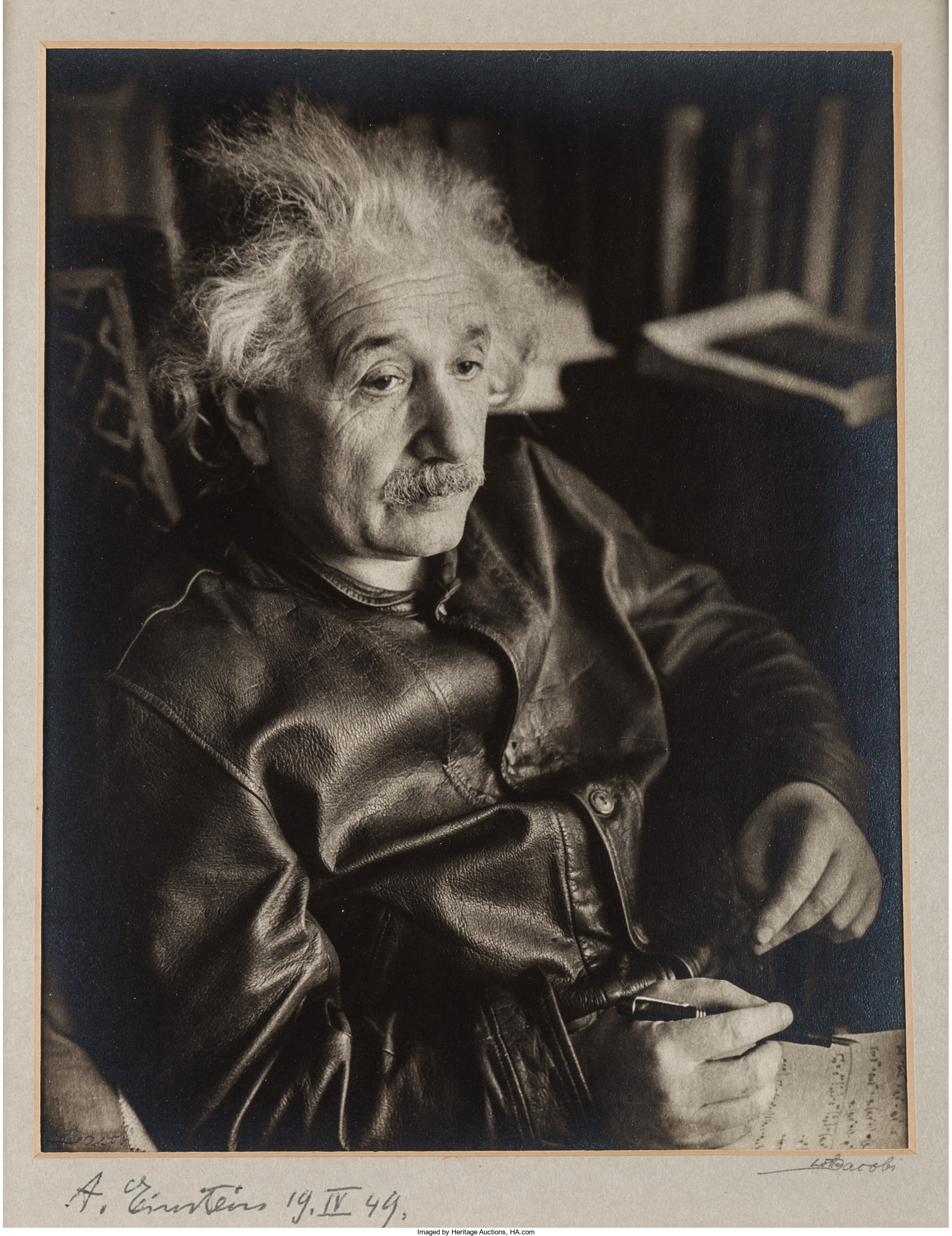
By Jim O’Neal
Mention the name Albert Einstein and instinctively the image of the iconic scientist with the unruly hair, pensive expression and the word “genius” spring to mind. As a theoretical physicist, his work on general relativity is a theory of gravitation that has evolved into a crucial tool in modern astrophysics and is foundational for current “black hole” research.
In popular culture, his mass-energy equivalence formula of energy equals mass multiplied by the speed of light squared (E = mc2) is generally regarded as “the world’s most famous equation.”
Then, of course, there was Einstein the mortal man.
This aspect is understandably less well known despite his empathy for mankind and the practical application of both his intellect and celebrity to help improve the world and its inhabitants. He was an avowed pacifist who considered war a “disease” and even advocated for a global democratic government that had control over the nation-states (e.g. Nazi Germany).
He viewed racism in the United States as a multi-generational problem and joined the NAACP as an activist to help cure “America’s worst disease.”
An earlier incident in 1925 even led to a series of related activities that eventually helped defeat the Germans in World War II. While reading a local German newspaper, he saw a tragic story about a couple that had died from leaking gases used in early refrigerators.
Einstein collaborated with fellow physicist Leo Szilard and they received patent #1,781,541 for an improved, safer refrigerator. Although they later sold it to Electrolux for 3,150 DM ($10,000), Einstein’s basic motive was to simply improve living standards for common people. BTW, he later invented a hearing aid for the same reason.
When Szilard immigrated to London, he ran across a book by H.G. Wells, The World Set Free, which describes an invention (unnamed) that could accelerate the process of radioactive decay, producing bombs which “continue to explode for days on end.” This inspired Szilard to develop the concept of a nuclear chain reaction in 1933 and then he patented the idea of a nuclear reactor with the famous Italian physicist Enrico Fermi. Basically, he had a patent on the first atomic bomb.
But, in 1936 Szilard sold/assigned his chain-reaction patent to the British Admiralty to ensure its secrecy from the Germans or others considered untrustworthy.
He later suspected the Germans had a clandestine nuclear weapon project and on the eve of World War II drafted a letter to FDR to alert him to the potential development “of extremely powerful bombs of a new type.” He got Einstein to endorse it and to urge the United States to begin similar research.
This inevitably led to the Manhattan Project, which preempted the Germans and saved the world in the eyes of most experts.
Although Einstein supported the development of nuclear weapons to defend the Allies, he denounced the use of nuclear weapons as an offensive force. He never renounced his resolve as a pacifist or as an agnostic.
In 1999, Time magazine named Albert Einstein their choice as “Person of the Century.”
I hope we get one for this century … soon.
 Intelligent Collector blogger JIM O’NEAL is an avid collector and history buff. He is President and CEO of Frito-Lay International [retired] and earlier served as Chairman and CEO of PepsiCo Restaurants International [KFC Pizza Hut and Taco Bell].
Intelligent Collector blogger JIM O’NEAL is an avid collector and history buff. He is President and CEO of Frito-Lay International [retired] and earlier served as Chairman and CEO of PepsiCo Restaurants International [KFC Pizza Hut and Taco Bell].
